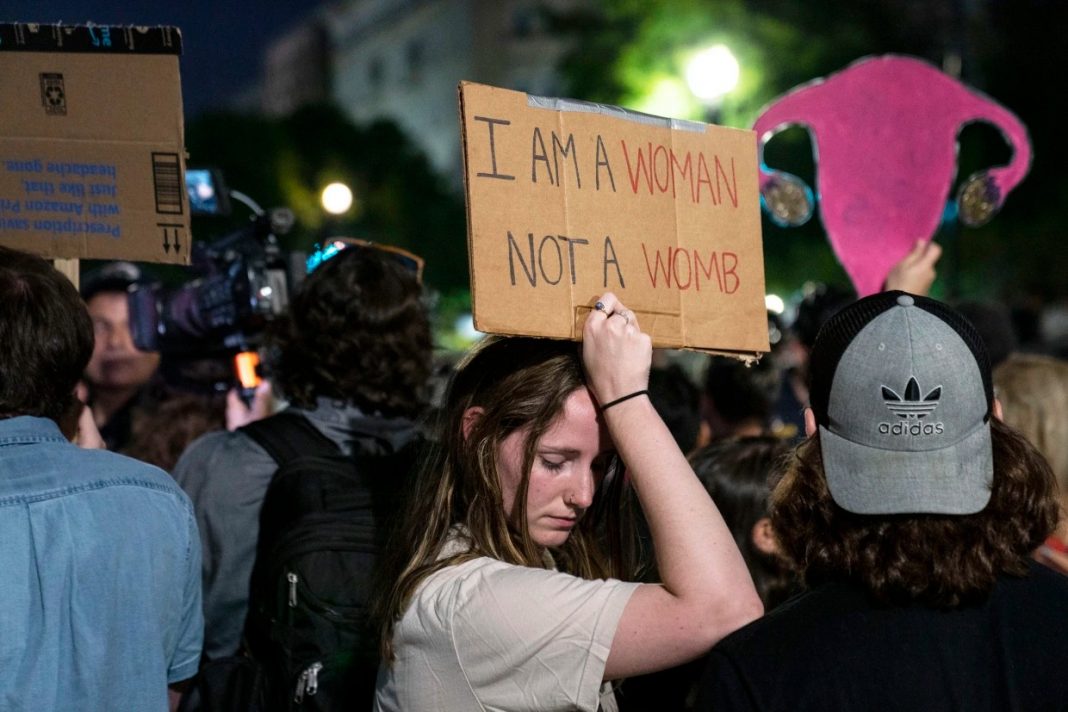In November I went under the knife for a bilateral salpingectomy, the removal of both of my fallopian tubes, at 24 years old. The procedure is permanent, irreversible and more than 99 percent effective in preventing pregnancy. Three months earlier on a muggy August day in Washington, D.C., I had walked into my gynecologist’s office to inquire about the procedure. I’d heard horror stories of doctors refusing to conduct the surgery on young, unmarried patients and expected similar disregard. However, I met with my surgeon within the week. She sat on a stool across from me and told me, “I’m not one of those paternalistic doctors. We’ll go through all the pros and cons so you can make an informed decision and whatever you decide is right for you, we’ll do.”
. . . . . . . . . . . . . . . . . . . . . . . . . . . . . . . . .
Everyone seeking access to reproductive health care deserves an affirming experience like mine. But the leaked Supreme Court opinion draft that would overturn Roe v. Wade, the landmark 1973 decision that established a constitutional right to abortion nationwide, and turn the decision back to states, could prevent conversations like this from happening.
Growing up in Indiana, where access to abortion and reproductive care is increasingly restricted, I saw firsthand how this basic right could be stripped away. In 2015, the GOP-controlled state House and Senate, and Mike Pence, who was the governor of Indiana at the time, faced national scrutiny for the Religious Freedom and Restoration Act, which is still in effect today. It was modeled after federal legislation cited in the Supreme Court decision that allowed Hobby Lobby and other corporations with religious objections to refuse insurance coverage for certain contraceptives.
Many criticized the Indiana law for being written in a way that could allow doctors to deny services, including reproductive care, based on sexual orientation or gender identity. Following widespread boycotts to protect LGBTQ+ Hoosiers from discrimination, an amendment was later added to clarify that the law didn’t authorize providers to “refuse to offer or provide services, facilities, use of public accommodations, goods, employment, or housing to any member or members of the general public on the basis of race, color, religion, ancestry, age, national origin, disability, sex, sexual orientation, gender identity, or United States military service” — but many argue it lacks teeth. As vice president, Pence later championed a similar rule allowing health providers to refuse services such as abortion on religious grounds.

